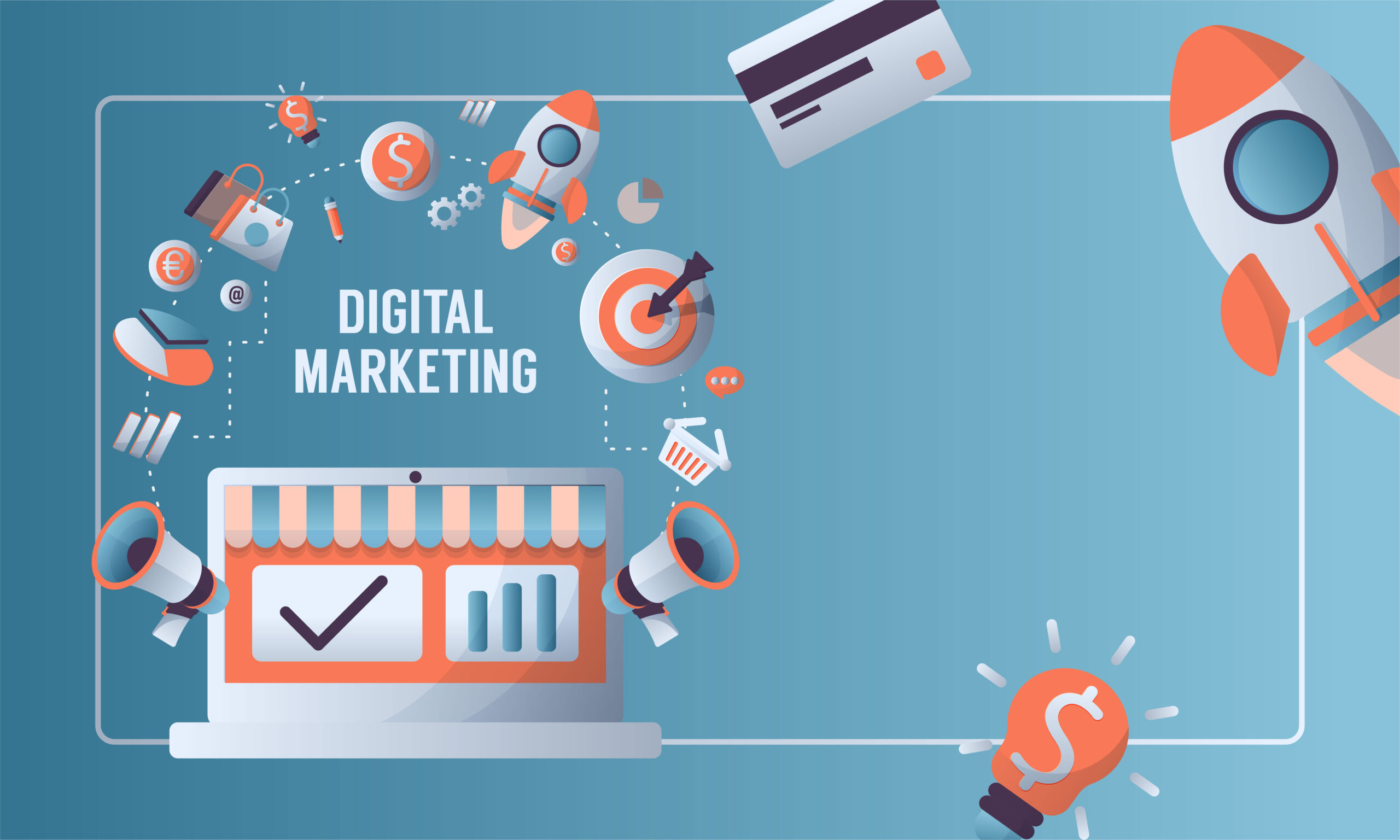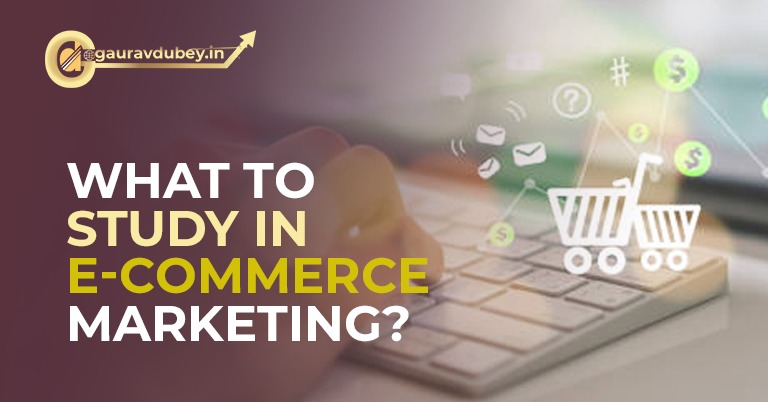E-commerce marketing is the practice of using various digital marketing strategies to drive traffic to an e-commerce website and increase sales. With the rise of online shopping, it has become more important than ever for businesses to have a strong e-commerce marketing strategy. In this article, we will discuss the key components of a successful e-commerce marketing strategy, including SEO, digital marketing, payment options, e-commerce CMS management, international strategy, and mobile optimization.
What is E-commerce Marketing?
E-commerce marketing is the process of promoting products and services offered by online businesses. It involves various tactics, including SEO, paid advertising, email marketing, and social media marketing, to attract and retain customers. A strong e-commerce marketing strategy can help businesses increase their online visibility, build brand awareness, and boost sales.
SEO Strategy for E-commerce Website:
SEO (search engine optimization) is a crucial component of e-commerce marketing. A well-executed SEO strategy can help an e-commerce website rank higher in search engine results pages (SERPs) and attract more organic traffic. To improve your e-commerce SEO strategy, you can:
- Conduct keyword research to identify the most relevant keywords for your products and services.
- Optimize your product pages by using descriptive product titles, meta descriptions, and alt tags for images.
- Ensure that your website is mobile-friendly and has fast loading times.
- Use internal linking to connect related product pages.
- Use schema markup to provide search engines with more information about your products and services.

Types of E-payments:
Offering a variety of payment options is essential for e-commerce websites. Some of the most common types of e-payments include:
- Credit/debit card payments
- PayPal
- Apple Pay
- Google Wallet
- Cryptocurrency payments
By offering multiple payment options, you can cater to the preferences of different customers and make it easier for them to complete their purchases.
Digital Marketing in E-commerce:
Digital marketing is a key component of e-commerce marketing. It involves using various online channels to promote your products and services and drive traffic to your e-commerce website. For e-commerce enterprises, a few of the most successful digital marketing strategies are:
- Email marketing to keep customers informed of new products, promotions, and sales.
- Social media marketing to engage with customers and promote your brand.
- Content marketing to provide valuable information to customers and improve your website’s SEO.
- Affiliate marketing to partner with other websites and promote your products and services.
- Influencer marketing to leverage the reach of social media influencers to promote your brand.

Paid Marketing for E-commerce:
Paid marketing is another important strategy for e-commerce businesses. By investing in paid advertising, you can reach a wider audience and increase your website traffic. Some of the most popular types of paid advertising for e-commerce businesses include:
- Google Ads to show ads in search engine results pages.
- Facebook Ads to target specific audiences on Facebook and Instagram.
- Display advertising to show banner ads on relevant websites.
- Retargeting to show ads to people who have previously visited your website.
- Shopping ads to promote your products directly in search engine results pages.

E-commerce CMS Management:
An e-commerce CMS (content management system) is a software platform that allows businesses to manage their e-commerce website. It is essential to manage the CMS effectively to streamline operations, improve website performance, and provide a better user experience. Some best practices for managing an e-commerce CMS include:
- Regularly updating the website’s content and product offerings.
- Monitoring website analytics to identify areas for improvement.
- Optimizing the website’s performance by minimizing load times and fixing any technical issues.
- Ensuring that the website is secure and protected against potential threats.
- Providing a seamless checkout experience for customers.
International E-commerce Strategy:
Expanding into international markets is an excellent way for e-commerce businesses to increase their customer base and revenue. However, international e-commerce comes with its unique set of challenges, such as language barriers, cultural differences, and varying regulations. Some tips for creating an effective international e-commerce strategy include:
- Researching and understanding the target market’s cultural norms and preferences.
- Offering multiple payment options that cater to the preferences of customers in different regions.
- Providing localized content, such as product descriptions and website translations.
- Adapting to the different regulations, taxes, and duties in each market.
- Working with international shipping partners to provide efficient and cost-effective delivery options.

E-commerce Apps:
Mobile commerce is becoming increasingly popular, with more consumers using their smartphones to shop online. E-commerce apps are an excellent way for businesses to provide a seamless shopping experience for mobile users. Some tips for creating an effective e-commerce app include:
- Ensuring that the app is user-friendly and easy to navigate.
- Providing a fast and secure checkout process.
- Offering personalized recommendations based on customers’ shopping behavior.
- Integrating social media and other marketing channels to increase app downloads and engagement.
- Using push notifications to keep customers informed of new products, promotions, and sales.
Gateway Providers & Policies:
Gateway providers and policies are essential components of e-commerce operations. A payment gateway is a service that allows businesses to accept online payments from customers. Some tips for selecting a payment gateway provider include:
- Researching and comparing the different providers to find the one that best fits your business needs.
- Ensuring that the provider offers secure payment processing and fraud detection.
- Checking the provider’s pricing structure and transaction fees.
- Verifying that the provider offers the payment options that your customers prefer.
- Reviewing the provider’s policies to ensure that they align with your business objectives.
Landing Page Optimization for E-commerce:
Landing pages are critical for converting website visitors into customers. Optimizing landing pages can help businesses increase their conversion rates and drive sales. Some tips for optimizing landing pages include:
- Ensuring that the landing page is visually appealing and easy to navigate.
- Providing clear and concise product descriptions.
- Including high-quality product images and videos.
- Making the call-to-action (CTA) prominent and clear.
- Testing different landing page designs and elements to determine the most effective layout.
Mobile Payments:
Mobile payments have become increasingly popular in the world of e-commerce. By enabling customers to make purchases using their mobile devices, businesses can increase convenience and improve the overall shopping experience. Here are some of the benefits of mobile payments for e-commerce:
- Convenience: Mobile payments allow customers to make purchases from anywhere, at any time, without the need for a physical wallet or credit card.
- Security: Mobile payments can be more secure than traditional payment methods, as they use encryption technology to protect customers’ financial information.
- Speed: Mobile payments are often faster than traditional payment methods, allowing customers to complete transactions quickly and efficiently.
- Increased Sales: By offering mobile payments, businesses can attract customers who prefer to make purchases using their mobile devices, potentially increasing sales.
- Competitive Advantage: Offering mobile payments can give businesses a competitive advantage over others in their industry, as it shows that they are keeping up with current technology trends and meeting the needs of their customers.
Overall, these all are valuable addition to any e-commerce business providing convenience, security, speed, increased sales, and a competitive advantage.


